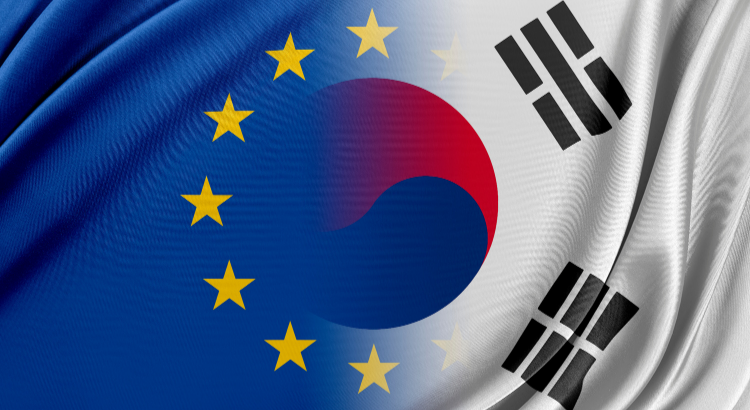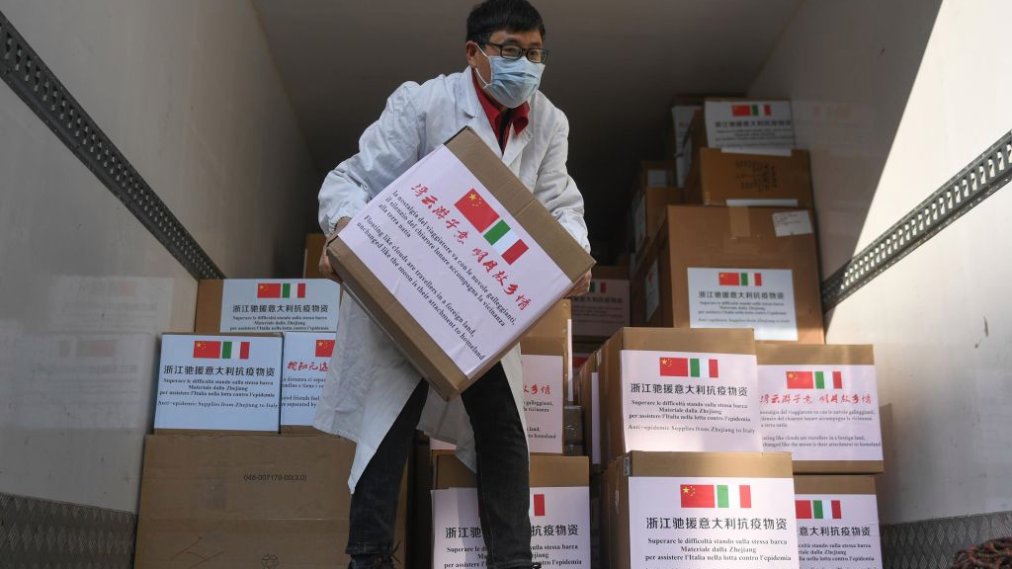Welcome to the 42nd issue of the #CEEasia Briefing.
In this issue, we dissect the following topics:
- Taiwania Capital invests in Slovakia
- China’s efforts to improve ties with the EU
Do you need to know more about East Asia? Don’t hesitate to shoot us a message about custom analysis tailored to your needs.
1. Taiwania Capital rolls out a major investment in Slovakia
What’s going on? Taiwania Capital’s CEE Investment Fund announced its fourth investment worth EUR 6.2 million in Slovak green tech company Sensoneo. The firm provides innovative and smart waste management solutions for cities, businesses, and countries, and aims to expand to Asia by opening its first Asian branch in Taiwan. The investment was announced on the sidelines of the Third Session of Taiwanese-Slovak Commission on Economic Cooperation held in Taipei, which included a delegation of Slovak businessmen. The governmental side was represented by Slovakia’s Deputy Minister of Economy Peter Švec, and the session concluded with 8 MoUs focused on deepening Slovak-Taiwanese relations in the fields of culture, trade, academic exchange, healthcare, and most importantly, semiconductors.
Going deeper… CEE Investment Fund was established in March 2022 by Taiwan’s Executive Yuan’s National Development Fund. The fund of USD 200 million targets investments in strategic sectors such as semiconductors, biotechnology, aerospace, fintech, EVs, and laser optics, with a special focus on Lithuania, Slovakia, and Czechia. Previous investments from Taiwania Capital include EUR 3.5 million in Lithuania’s laser company Litilit, EUR 8 million in Slovakia’s Photoneo, and EUR 3.5 million in Oxipit, a Lithuanian developer of artificial intelligence tools for medical imaging.
This means… Besides the investments made by Taiwania Capital, the current state of warmer relations between Taiwan and Slovakia can be traced back to several developments, including the 2020 Slovak parliamentary elections that brought to power a coalition of parties more open to pursuing relations with Taiwan. In addition to this, Taiwan’s successful approach in containing the COVID-19 pandemic, PPE and other medical donations to various countries and the Russian invasion of Ukraine further contributed to the momentum in Slovak-Taiwanese relations.
Still… Slovakia’s political support for Taiwan tends to come alongside initiatives in other fields such as economy, culture or technology. There is also a strong component of domestic politics that has been conditioning the development of political ties between the two for a number of years now. As a result, it is plausible that the upcoming Slovak parliamentary elections in September – and prospect of a more conservative government – will cause a downturn in bilateral relations between Slovakia and Taiwan.
2. Li Qiang’s outreach to Europe
What’s going on? Chinese Premier Li Qiang’s visit to Europe, including to Germany and France, marks his first overseas visit since assuming office in March 2023. As part of China’s efforts to improve relations with European nations, the trip included several vital events, including the Summit for a New Global Financing Pact in Paris and a meeting with Chancellor Olaf Scholz in Berlin.
Going deeper… The main objective of Li’s visit seems to have been the response and concerns around the EU’s “decoupling” policy as well as efforts to promote cooperation between China and the bloc. Li emphasized the importance of maintaining strategic autonomy and enhancing collaboration with Beijing to build more resilient supply chains. Moreover, in what seems to have been a response to the new Economic Security Strategy proposed by the EU, Li stated that China would reject any attempts at trade protectionism and supply chain decoupling.
At the same time… In Germany, Olaf Scholz’s government has also adopted a stricter policy towards China, reflecting growing skepticism about Sino-German relations. Although the country’s new National Security strategy highlights the importance of Germany’s trading relationship with Beijing (Germany being China’s biggest trading partner within the EU), the strategy identifies China as both a competitor and a systemic rival. This stands in stark contrast to the EU’s proposal that includes screening outbound investments and expanding export controls without specific reference to China. The strategy further accuses Beijing of attempting to reshape the international order, using its economic power to achieve political goals and disregarding human rights.
This means… EU countries are implementing measures to prevent autocratic regimes from obtaining essential technologies that could jeopardize their economic security, such as AI and 5G. This goes hand in hand with the ongoing calls from Brussels to exclude Chinese companies Huawei and ZTE from the EU’s 5G networks. Germany, which has been broadening its imports and implementing measures to decrease its dependency on China in the past few years, seems to be a part of this widening trend with little indication it is planning to make a u-turn on this policy.
Quick takes on CEEasia developments
TAIWAN | As relations and reciprocal visits between the EU and Taiwan intensify, Taiwan’s Minister of Foreign Affairs Joseph Wu paid a week-long visit to Europe with stops in Brussels, Czech Republic, where he met several high-ranking officials, including the Vice President of the European Parliament Nicola Beer, or President of the Czech Senate Miloš Vystrčil. Wu also held opening remarks at the same summit (Prague) as Czech President Petr Pavel and later visited Italy (Milan), where Taipei will open its second representative office shortly.
SOUTH KOREA | Following the 2022 arms deal between the two, South Korea and Poland are claimed to be discussing joint development of the South Korean Army’s K808 wheeled armored vehicles. With Poland intensifying its arms procurement efforts and South Korea trying to become one of the world’s major arms dealers, the deal has established a public-private consortium of Polish-Korean companies that are to jointly cooperate on any subsequent military-industrial projects between the two countries.
PAKISTAN | Pakistani and Bulgarian government representatives signed an MoU formalizing bilateral cooperation in maritime transportation that includes improved customs and increased maritime trade. They also discussed prospects of Pakistani workers filling the void in the Bulgarian labor market.







